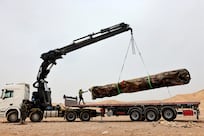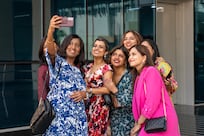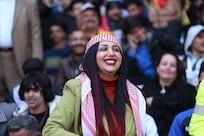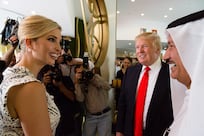ABU DHABI // When it comes to picking out books for their children, Emirati parents prefer non-fiction about plants, animals, Earth and space sciences, a study has found.
After the sciences, Emiratis like to choose non-fiction children's books about religion, morality, ethics and world cultures, said Dr Lydia Barza, lead author of the study published in the latest edition of Learning, Culture and Social Interaction.
Dr Barza, associate professor at Zayed University’s College of Education, said she became curious about Emirati parents’ preferences for their children’s reading material after browsing local bookshops and seeing mostly translations of western texts.
“I wondered if this was appealing to them or not,” Dr Barza said. “I also had students complain to me about the quality and content of Arabic children’s books.”
Dr Barza’s interest in how Emiratis transmit culture through reading was piqued after she noticed a scarcity of research in this area. With co-author Antje von Suchodoletz of New York University Abu Dhabi, Dr Barza surveyed 118 Emirati parents of children at public and private schools from kindergarten to Grade 6 in Dubai and Abu Dhabi.
“The ultimate goal is that we want to encourage Emirati parents to increase their children’s love of reading and their reading skill,” Dr Barza said.
“Then what I wanted to know is, what is their perspective of the purpose of shared reading and, specifically, what types of children’s literature they acknowledged?”
The study found parents had a "clear preference for non-fiction" but when asked about their favourite story, 93 per cent of the respondents cited fictional folk and fairy tales such as Aladdin, Sinbad the Sailor, Ali Baba and the Forty Thieves and the Tales of Juha.
"When asked to tell about their favourite storybook, 55 per cent mentioned traditional European folktales such as Cinderella and Little Red Riding Hood," according to the study, Home literature as cultural transmission: Parent preferences for shared reading in the United Arab Emirates.
"Few were able to name a single traditional Arab tale aside from those in The Arabian Nights. Some simply indicated that they enjoyed, 'stories about our folk tradition and culture', mostly told orally and described as 'grandmothers' stories'."
Twenty-five per cent did not identify a favourite storybook at all.
“They viewed fiction as something that was not as useful to their child’s literacy development,” Dr Barza said. “I think there is a lot we can do in terms of parent education for them to understand a little bit more about why there is such a focus on fictional texts for young children.”
When it came to non-fiction, most respondents “valued information books on the life sciences, particularly animals and plants”, according to the study. “They also liked books about Earth and space science. They sought books on Earth sciences to focus on weather, environment and farming.”
The researchers linked the parents’ preference for science books with local culture and the history of Islamic civilisation. Astronomy, they pointed out, is connected to Islam, for example.
The research noted the parents’ second most popular choice for non-fiction was books about religion and morality, which “speaks to the amalgamation of religion and culture for UAE nationals”.
Parents also expressed “an openness and willingness” to use non-fiction books to teach their children about foreign cultures, which the researchers attributed to the multicultural workforce in the UAE.
Dr Barza said she hoped the findings would help guide teachers, publishers and writers to choose, distribute and write books that were meaningful to Emiratis.
“These are the things that parents want and many times say that they cannot find,” Dr Barza said.
Dr Anna Dillon, director of the Early Childhood Learning Centre at ZU, agreed that schools needed to get the word out about the value of fiction.
“It would be lovely to have more Arabic-language books that originate here,” Dr Dillon said.
rpennington@thenational.ae





